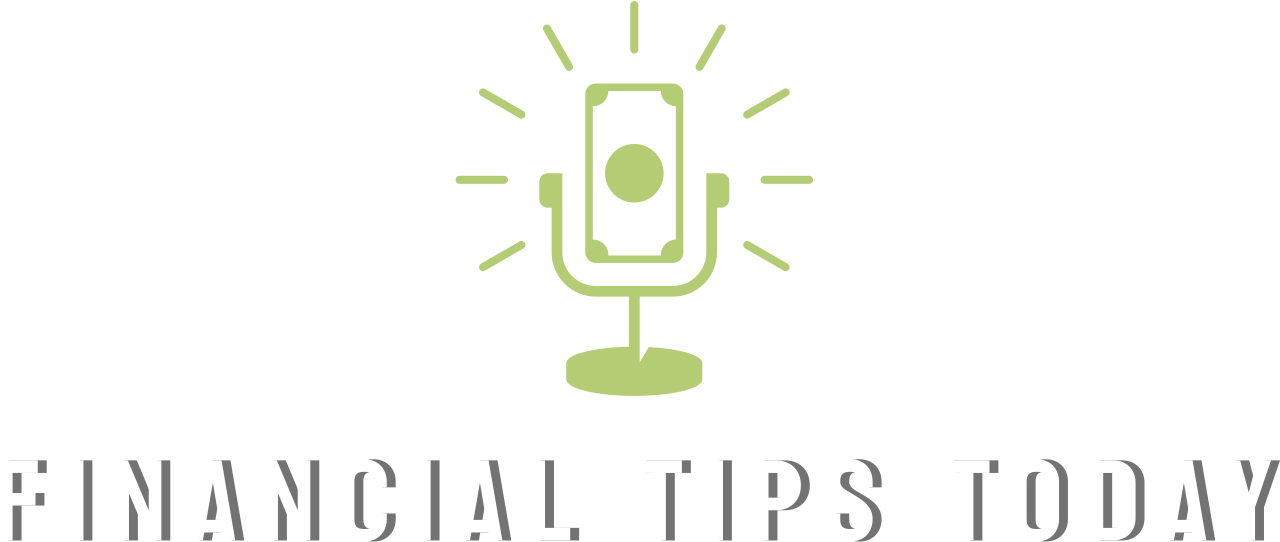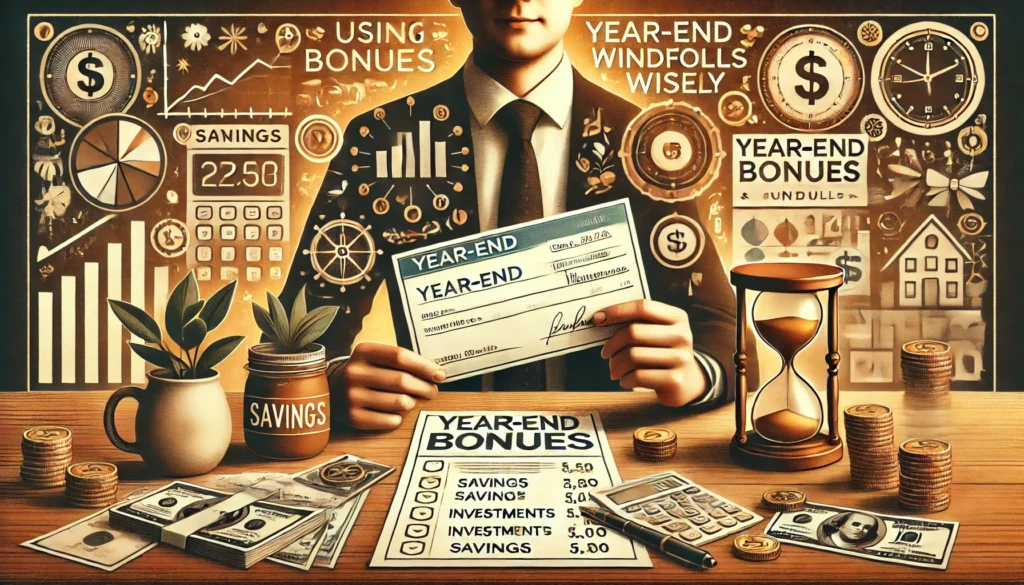Receiving a year-end bonus or an unexpected financial windfall can feel like a major win, especially during the holiday season. Whether it’s a work bonus, tax refund, or even an inheritance, the temptation to spend it all on holiday gifts, vacations, or indulgent purchases can be strong. However, using that extra cash wisely can have a lasting impact on your financial future.
Here are practical tips on how to use your year-end bonus or financial windfall strategically to improve your financial health.
1. Pay Off High-Interest Debt
One of the smartest moves you can make with extra cash is to pay off high-interest debt, such as credit card balances or personal loans. These types of debt carry hefty interest rates that can quickly accumulate, making it harder to pay off over time. By using your bonus to eliminate or reduce these balances, you save money on interest and improve your overall financial health.
Benefits of Paying Off Debt:
- Save on interest payments: High-interest debts, especially credit card debt, can cost you hundreds or even thousands of dollars in interest over time. Paying off the balance early reduces the amount you’ll pay in interest.
- Improve your credit score: Reducing your outstanding debt lowers your credit utilization ratio (the amount of debt compared to your credit limit), which is a key factor in your credit score.
- Free up cash flow: Once your debt is paid off, the money you were using for debt payments can be redirected toward savings, investing, or other financial goals.
If you have multiple debts, prioritize paying off the one with the highest interest rate first (the avalanche method) or pay off smaller debts to gain momentum (the snowball method).
2. Build or Boost Your Emergency Fund
Another wise way to use your bonus or windfall is by building or boosting your emergency fund. An emergency fund is a critical safety net that protects you from unexpected expenses like medical bills, car repairs, or job loss. If you don’t have an emergency fund, or if yours is underfunded, this is an excellent opportunity to strengthen it.
How to Build Your Emergency Fund:
- Set a savings goal: Financial experts recommend having at least three to six months’ worth of living expenses saved in an emergency fund. If you’re self-employed or have an irregular income, consider saving more.
- Keep it accessible: Store your emergency fund in a high-yield savings account that is easy to access but separate from your checking account, so you’re not tempted to dip into it for everyday expenses.
- Automate your savings: If you’re not using your full windfall to fund the emergency account, consider setting up automatic transfers to continue growing it over time.
By building a robust emergency fund, you can gain peace of mind knowing you’re financially prepared for the unexpected.
3. Max Out Your Retirement Accounts
Using your year-end bonus or windfall to maximize your retirement contributions is a smart, long-term strategy that can significantly boost your financial future. Contributing to retirement accounts like a 401(k), IRA, or Roth IRA allows your money to grow tax-deferred or tax-free, depending on the account type.
How to Maximize Retirement Contributions:
- Contribute to your 401(k): If your employer offers a 401(k) plan, try to contribute the maximum allowed amount, which is $22,500 for 2024 (with an additional $7,500 catch-up contribution if you’re 50 or older). This not only helps you save for retirement but also reduces your taxable income for the year.
- Fund your IRA or Roth IRA: For 2024, you can contribute up to $7,000 (or $8,000 if you’re 50 or older) to an IRA or Roth IRA. If you haven’t maxed out your contributions yet, using your windfall to do so is a great way to increase your retirement savings.
- Take advantage of employer matching: If your employer offers a 401(k) match, make sure you contribute enough to receive the full match—it’s essentially free money for your retirement.
By prioritizing retirement contributions, you can take advantage of compound growth over time and ensure a more financially secure future.
4. Invest for Long-Term Growth
If you’ve already covered your debts and emergency fund and maxed out retirement accounts, consider using your windfall to invest for long-term growth. Investing allows your money to grow and work for you, potentially increasing your wealth over time.
Ways to Invest Your Bonus:
- Stock market: Consider investing in stocks, ETFs (exchange-traded funds), or mutual funds to benefit from the long-term growth potential of the market. Focus on building a diversified portfolio that balances risk and reward.
- Real estate: If you’re interested in real estate, you could use your windfall to save for a down payment on a rental property or invest in Real Estate Investment Trusts (REITs), which allow you to invest in real estate without the hassle of managing property.
- Taxable brokerage accounts: If you’ve already maxed out tax-advantaged accounts like IRAs and 401(k)s, consider using a taxable brokerage account to continue investing. Although you won’t get the tax benefits, this allows more flexibility in how and when you use the funds.
Investing wisely can significantly increase the value of your bonus or windfall over time, helping you achieve long-term financial goals like early retirement, education savings, or major life purchases.
5. Save for a Major Financial Goal
If you have a specific financial goal in mind, such as buying a home, starting a business, or funding your child’s education, your bonus or windfall can provide the perfect opportunity to start or accelerate your savings for that goal.
Examples of Major Financial Goals:
- Save for a home down payment: Use the windfall to boost your down payment savings, which can help you secure a better mortgage rate or reduce monthly payments when you buy a home.
- Start a college fund: If you have children, consider using part of your windfall to start or add to a 529 college savings plan, which offers tax advantages for education expenses.
- Build a business fund: If you’ve always dreamed of starting a business, now could be the time to put money aside to cover startup costs, marketing, or other initial expenses.
Saving for major financial goals helps you plan for the future while giving you a sense of purpose for how you’re using your windfall.
6. Treat Yourself (Responsibly)
It’s okay to use a portion of your year-end bonus or windfall to treat yourself, as long as you do so responsibly. After all, you’ve worked hard for that bonus or earned that windfall, so rewarding yourself can be part of the enjoyment. The key is to strike a balance between treating yourself and securing your financial future.
How to Treat Yourself Responsibly:
- Set a spending limit: Decide what portion of your bonus or windfall you want to allocate to fun or indulgent purchases—whether it’s 10%, 20%, or another amount. Stick to this limit to avoid overspending.
- Avoid impulse purchases: Instead of making impulsive or extravagant purchases, consider using the money on something meaningful, like a vacation, an experience, or something that brings you joy but doesn’t derail your financial progress.
- Think of your long-term happiness: When choosing how to treat yourself, focus on purchases or experiences that will bring long-term satisfaction, rather than quick, short-lived impulses.
By setting boundaries on how much of your windfall to spend on yourself, you can enjoy the fruits of your labor while still prioritizing your financial goals.
7. Donate to a Cause You Care About
If you’re in a strong financial position, consider using part of your bonus or windfall to give back by donating to a charity or cause that’s important to you. Giving back can be incredibly fulfilling, and donations to qualified charities may also provide a tax deduction, helping reduce your taxable income for the year.
How to Give Wisely:
- Choose a reputable charity: Research organizations to ensure your donation goes to a reputable cause. Websites like Charity Navigator and GuideStar can help you evaluate charities.
- Maximize your tax benefits: Donations to qualified 501(c)(3) organizations are tax-deductible, so keep records of your contributions and claim the deduction when you file your taxes.
- Consider a Donor-Advised Fund (DAF): If you want more flexibility in how you distribute your donations over time, consider contributing to a Donor-Advised Fund (DAF), which allows you to receive an immediate tax deduction and decide later which charities to support.
Giving back allows you to make a positive impact while potentially reducing your tax burden.
Final Thoughts
A year-end bonus or unexpected financial windfall presents a valuable opportunity to improve your financial situation, build wealth, and plan for the future. Whether you choose to pay off debt, boost your emergency fund, invest for the long term, or treat yourself responsibly, using the extra cash strategically will help you reach your financial goals more effectively.
By approaching your windfall with a thoughtful plan, you can enjoy the benefits of your bonus while securing your financial well-being for years to come.





 GOOGL
GOOGL  META
META
Leave a Comment